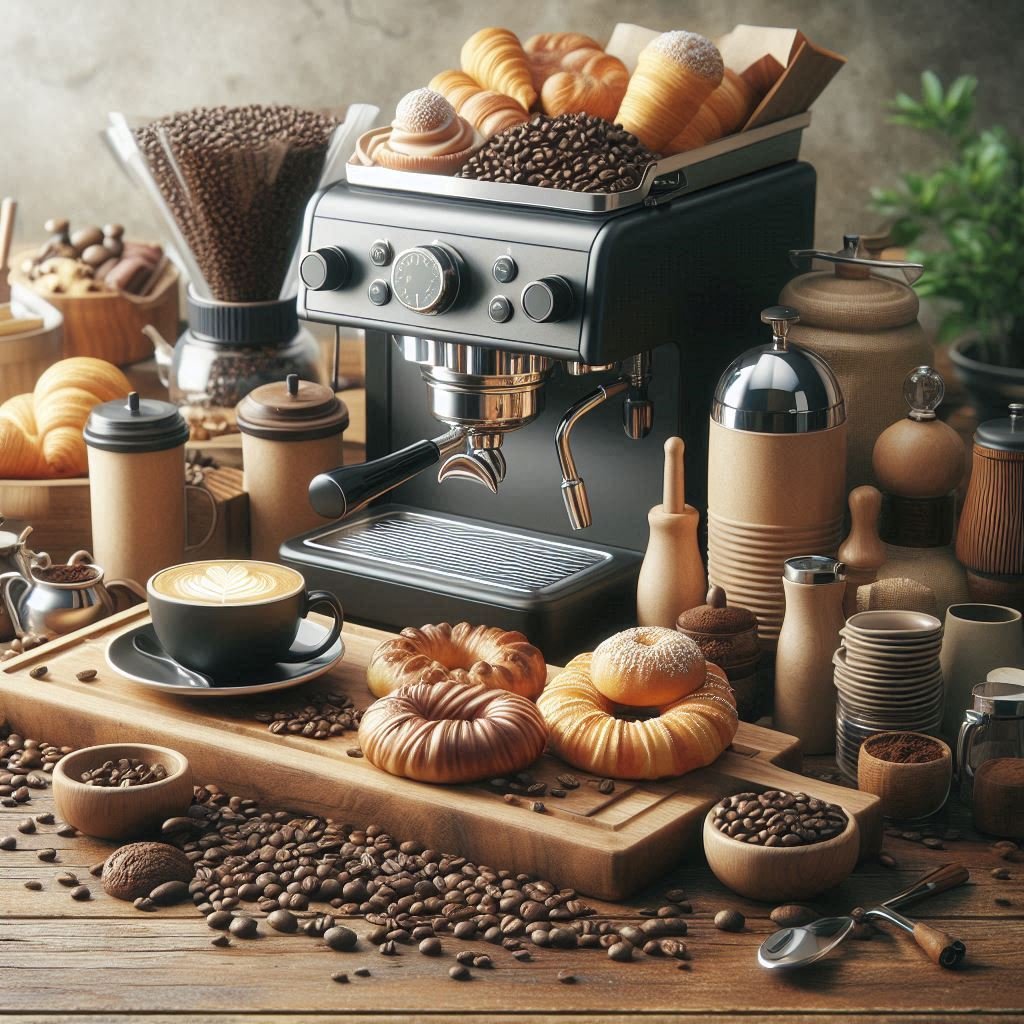Essential Materials Needed to Open a Coffee Shop
Introduction
Opening a coffee shop is a rewarding venture, combining passion for coffee with business acumen. However, success requires more than just high-quality beans—it demands a well-equipped space, efficient workflow, and the right atmosphere to attract customers. Whether you envision a cozy artisan café or a bustling espresso bar, equipping your coffee shop with the right materials is crucial for providing excellent service and ensuring customer satisfaction. This article explores the essential equipment, utensils, ingredients, and environmental elements necessary to open and operate a thriving coffee shop.
Coffee Equipment: The Backbone of Your Business
Espresso Machine
An espresso machine is the heart of any coffee shop, responsible for crafting high-quality coffee beverages such as lattes, cappuccinos, and macchiatos. When selecting a machine, consider factors like pressure consistency, boiler capacity, and ease of maintenance. Professional-grade machines ensure efficiency during peak hours, delivering uniform espresso shots and maintaining customer satisfaction.
Coffee Grinder
A high-performance grinder is equally important as the espresso machine. Freshly ground coffee enhances flavor, so investing in a burr grinder instead of a blade grinder guarantees precision and consistency. Different grinds are required depending on the brewing method—espresso demands a fine grind, while pour-over coffee works best with medium to coarse grinds.
Brewing Methods
Beyond espresso, offering a range of brewing methods enhances menu diversity and attracts customers who enjoy manual brewing techniques. Essential brewing equipment includes:
- French Press – Produces rich, full-bodied coffee.
- Pour-Over Devices (V60, Chemex, Kalita Wave) – Preferred by specialty coffee enthusiasts for controlled extraction.
- AeroPress – Compact and versatile for making concentrated coffee.
- Cold Brew System – Necessary for brewing smooth, less acidic cold coffee.
Milk Frother & Steamer
For cafés serving milk-based drinks, a milk frother and steam wand are essential. Baristas use these tools to create silky microfoam for latte art and achieve perfect milk texture for cappuccinos. Temperature control is crucial—overheating milk alters its sweetness and ruins foam consistency.
Water Filtration System
Water quality directly impacts coffee taste. Investing in reverse osmosis or carbon filtration systems removes impurities, enhances flavor, and prevents mineral buildup in espresso machines, extending their lifespan.
Utensils & Accessories: Small Tools for Big Impact
Tamper & Knock Box
A tamper ensures uniform coffee grounds compression in the portafilter, affecting extraction quality. Knock boxes provide a convenient way to discard used coffee grounds, keeping the workspace clean.
Scales & Thermometers
Precision matters in coffee brewing. Digital scales help baristas measure coffee and water ratios accurately, ensuring consistency. Thermometers are vital for monitoring milk temperature, preventing scalding, and optimizing frothing.
Jugs & Pitchers
High-quality stainless steel milk pitchers allow baristas to control pouring and create latte art. Different sizes accommodate varying drink orders, ensuring smooth service.
Coffee Filters & Drippers
Filters vary depending on brewing methods. Paper filters enhance clarity in pour-over coffee, while metal filters retain oils for a fuller body. Ensuring a variety of filters accommodates diverse customer preferences.
Café Furniture & Layout
Counter & Bar Setup
An organized and functional counter enhances workflow efficiency. Ensuring easy access to machines, grinders, and ingredients allows baristas to operate seamlessly, reducing service delays.
Tables & Seating
Customer comfort is crucial. Offering a mix of seating options—cozy booths, communal tables, and outdoor spaces—caters to different client preferences, creating an inviting atmosphere.
Lighting & Ambience
Soft, warm lighting creates a relaxed vibe, while bright lighting enhances productivity in fast-paced cafés. Incorporating natural light fosters a welcoming environment and encourages customers to linger.
Storage & Display
Shelving for coffee beans, syrups, and merchandise improves organization and promotes sales. Open displays showcasing baked goods attract customers and enhance their experience.
Essential Ingredients & Inventory
Coffee Beans
The foundation of a great coffee shop is high-quality coffee beans. Choosing beans based on origin, roast profile, and freshness ensures a superior product. Opting for ethically sourced and direct-trade beans enhances sustainability and business reputation.
Milk & Milk Alternatives
Dairy options must include whole milk, skim milk, and half-and-half. Non-dairy alternatives like almond, oat, soy, and coconut milk accommodate dietary preferences and expand the customer base.
Syrups & Sweeteners
Offering flavored syrups (vanilla, caramel, hazelnut, chocolate) enhances beverage variety. Providing alternative sweeteners such as honey, agave, and stevia caters to health-conscious customers.
Pastries & Snacks
Complementary baked goods—croissants, muffins, cookies, and sandwiches—increase sales and customer retention. Partnering with local bakeries fosters community relationships and adds authenticity to the menu.
Business Essentials & Customer Experience
POS System & Payment Processing
A reliable Point of Sale (POS) system ensures smooth transactions. Options include traditional registers, digital tablets, and mobile payment integrations. Offering contactless payments enhances convenience for customers.
Employee Training & Customer Service
Knowledgeable baristas elevate coffee quality. Investing in barista training programs ensures consistency in brewing, customer engagement, and teamwork. Exceptional customer service builds loyalty and distinguishes your coffee shop.
Marketing & Branding
A strong brand identity increases visibility. Custom logo design, signage, social media presence, and loyalty programs attract customers and drive business growth.
Sustainability Practices
Implementing eco-friendly initiatives such as reusable cups, compostable packaging, and waste reduction strategies aligns with environmental responsibility and appeals to conscious consumers.
Conclusion
Opening a coffee shop requires meticulous planning and investment in essential equipment, ingredients, and customer experience strategies. Prioritizing quality coffee, professional-grade tools, and a welcoming environment fosters success and sustains a loyal clientele. Whether crafting the perfect espresso or designing an inviting café atmosphere, thoughtful preparation lays the foundation for a thriving coffee business.

